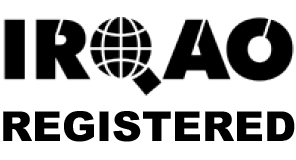Classroom Training
Audit Failure Recovery
If you’ve failed an ISO audit, it’s not too late to achieve accreditation or retain your certification. Clear Quality provide audit failure support for every stage of the process.
How and Why Might you Fail an Audit?
Audits are complex in many ways. Not only do they require a lot of preparation, including paperwork and practical implementation, but the audit itself will assess a very large number of different requirements and create a comprehensive record of findings. This means the how and why of audit failure will vary greatly depending on your company. However, having a grasp of the process will help you protect against a failed audit as well as recover more easily.
Failing Internal vs External Audits
An internal audit is usually undertaken by people within your organisation who have a firm grasp of the requirements of your ISO. Alternatively, consultants, such as those at Clear Quality, can issue an internal audit. If you’re looking to have an internal assessment, professional consultants are often the best choice as they have the experience and expertise to undergo a thorough and accurate audit, decreasing the chances of failure from an external auditor in the future.
If an internal audit uncovers nonconformities in your systems, it’s not a simple case of failing or passing. Internal assessments aren’t there to pass or fail your organisation; rather, their purpose is to reveal the areas which you still need to improve in order to maintain or reach conformity to your ISO. Simply undergoing an internal audit means you’ve done well, whether it’s an initial audit or a periodic assessment: you’ve taken the necessary steps to improve your company. You are now able to implement strategies to fix the nonconformities.
External audits are similar, but with some important distinctions -- these may vary according to whether you’ve undergone an initial audit or a periodic audit to maintain or transition into a newer version of your current ISO certification. The key things to remember are that the external registrar organisations each have their own processes. These determine how long you have to respond to the nonconformities they have raised. If it’s an initial audit, there’ll be a set time you have in order to address the shortcomings that resulted in the audit failure. This will be made clear to you by your auditor. If you manage to address these in the set time, then you can still be recommended for certification and achieve accreditation.
This is where Clear Quality come in. We help you to understand the nonconformities and what exactly you need to do in order to achieve certification.
What Can you do to Recover from Audit Failure?
Talk to an expert. An audit failure is not a full stop that prevents certification, but rather, an opportunity to further develop and improve your organisation.
If you’ve failed an external ISO audit, it’s important that you get in touch with someone who can help you understand the changes that need to be made, and how to go about implementing them, before your recovery time expires. If an internal audit has revealed major or minor non conformities, Clear Quality can work with you to create an action plan that prepares you for the next step: either achieving ISO certification, maintaining it or transitioning into a newer version, such as the ISO 9001:2015.
ISO standards training
Whether you’re looking to improve your quality management system ready for ISO 9001 certification or simply to develop the processes within your company, we provide in-house QMS manager training.
What Does Quality Management Training Involve?
Our quality training is built around the needs of your company and your in house managers; you get the training that works for you and addresses your specific requirements. We have a team of QMS experts that deliver the most up-to-date and relevant information to fully prepare you for improving your QMS and, if required, achieving ISO accreditation in the future.
We look to equip your in house managers and are happy to come to you to deliver the most efficient teaching. We are able to train larger groups of your staff to make the process as cost-effective as possible.
With training from Clear Quality, you receive:
- Professional teaching from experienced consultants
- A clear understanding of what a QMS is and what it does
- Comprehensive knowledge on how a QMS aligns with ISOs, particularly the ISO 9001
- Guidance in how to further your knowledge and improve processes in-house
- Practical methods and techniques you can use to improve your quality system
- Training tailored to your company
If you want to develop your in house QMS managers, then Clear Quality can provide the most relevant and up-to-date training that effectively equips your staff.
Emergency First Aid at Work
The Health and Safety (First-Aid) Regulations 1981 require employers to provide adequate and appropriate equipment, facilities and personnel to ensure their employees receive immediate attention if they are injured or taken ill at work. These Regulations apply to all workplaces including those with less than five employees and to the self-employed. What is ‘adequate and appropriate’ will depend on the circumstances in the workplace. This includes whether trained first-aiders are needed, what should be included in a first-aid box and if a first-aid room is required. Employers should carry out an assessment of first-aid needs to determine what to provide. At Clear Quality, we can provide bespoke first aid at work training to suit your needs in order for you to maintain a safe and secure workplace.
Emergency First Aid at Work Course
One Day Course:
The Emergency First Aid at Work Course is for those who want to receive training in emergency first aid only. It is suitable for nominated first aiders, or appointed persons in small, low risk workplaces or environments.
This one-day course will help you meet requirements if your workplace risk assessment shows that first aid training only needs to cover emergency protocols. The course is also ideal for individuals or groups who wish to have a basic foundation of First Aid Training and want to know how to respond on finding a casualty to the arrival of the emergency services.
The course covers:
- Provision of basic lifesaving first aid
- The role of the first aider
- Health and safety (first aid) regulations
- Managing an emergency
- Resuscitation (adult CPR)
- Communication and casualty care
- Seizures (adult)
- Bleeding
- Shock
- Burns
- Unresponsive casualty
- Choking (adult)
- Defibrillator pad placement
- Defibrillator prompts and how to respond
Please contact us for available dates and locations.

 Respond To Change In A Business Environment
Respond To Change In A Business Environment




